This Skagit County park was almost a nuclear power plant. A tribe helped save it: Travel For Good
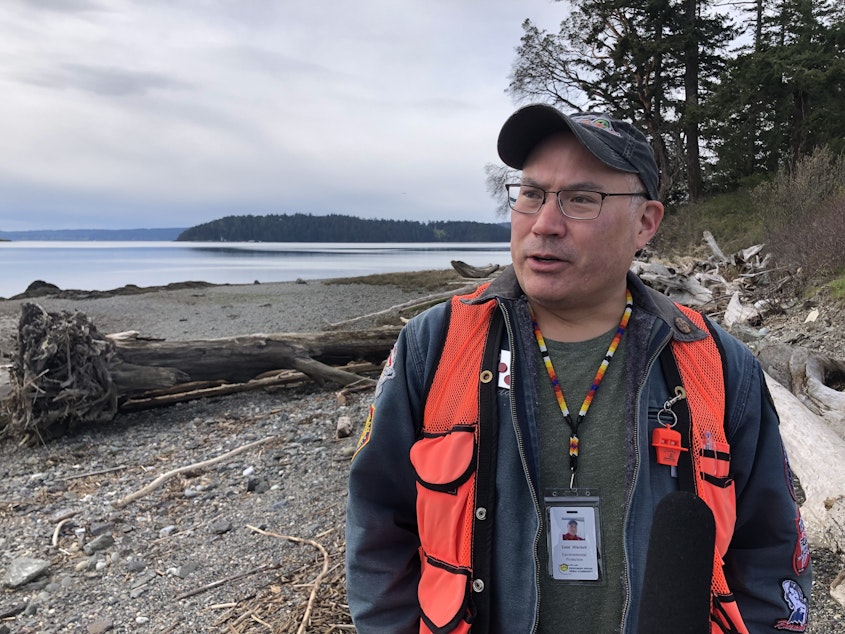
At different points in its history, the Kukutali Preserve, located about five miles northwest of La Conner in Skagit County, was slated to become a summer resort and even a nuclear power plant. But those plans didn’t come to pass.
Instead, a unique partnership between the Swinomish Tribe and state government now safeguards the area for conservation and public use. It opened to visitors as one of the state’s newest parks in 2014.
The Kukutali Preserve is a leaf-shaped park of forests and beaches on the Swinomish Reservation; it sticks out into Skagit Bay. It’s technically part of Deception Pass State Park. According to the Swinomish Tribe, it’s the first park in the country to be co-owned and managed by a federally recognized Indian tribe and a state government.
The forest preserve spent the 20th century in private hands. One owner built a road leading to a lavish private home. At one point, Seattle City Light and the Snohomish Public Utility District No. 1 purchased the property intending to build a nuclear power plant. But studies raised environmental concerns and the proposal was abandoned.
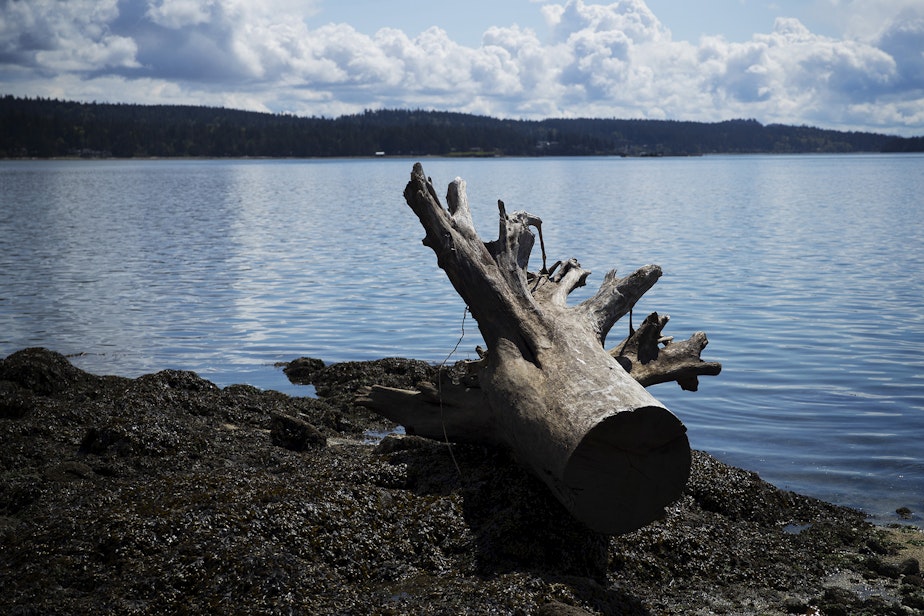
Todd Mitchell, whose traditional name in Lushootseed is ‘swəlítub,’ is the environmental director for the Swinomish Tribe. He said tribal members never relinquished ownership of the tidelands circling the preserve, but over the decades, their harvesting rights were denied.
“It’s always been an area that the tribe wanted to come back to,” Mitchell said.
Sponsored
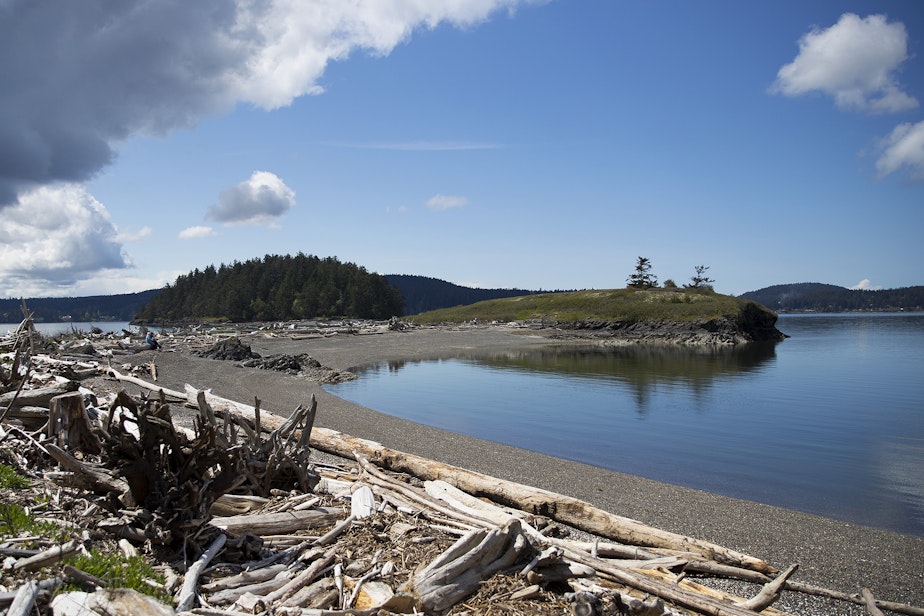
That hope was realized in the last decade, when the Swinomish Tribe and Washington State Parks agreed to acquire and manage the preserve together.
Now visitors can walk the preserve’s two miles of trails and explore its southern beaches — just be aware that the trail connecting Fidalgo Island with the main part of the preserve on Kiket Island is underwater at high tide.
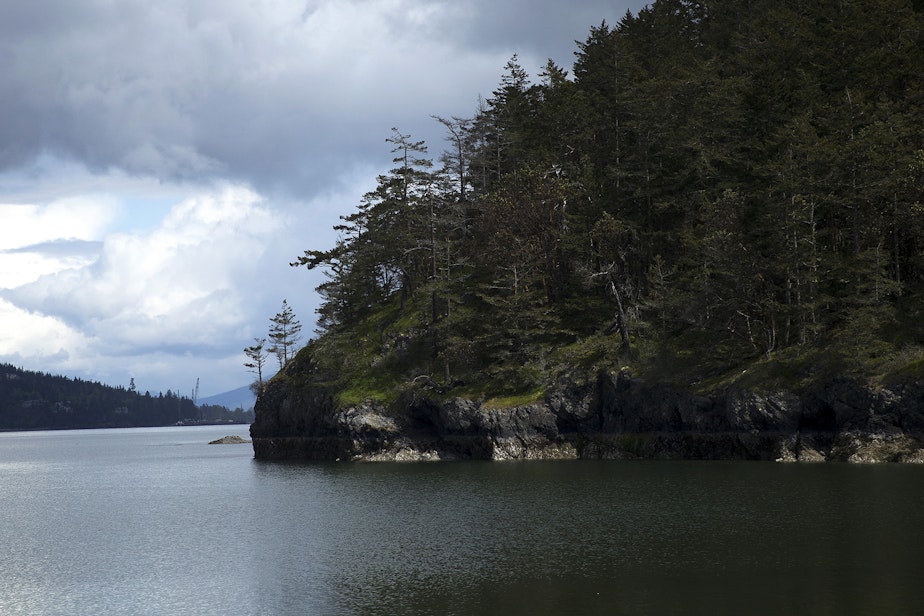
The northern beaches and tip of the island are designated as a wildlife preserve that supports juvenile salmon habitat. That part is off-limits to visitors.
Sponsored
The private home is gone; instead there’s a large grassy area with a picnic shelter. Mitchell even designed the logo that hangs there. It depicts a traditional hand tool (a cattail mat creaser, used by tribal members to make cattail mats for temporary shelter or bedding) adorned with a two-headed bird, representing the partnership between Washington State Parks and the tribe.
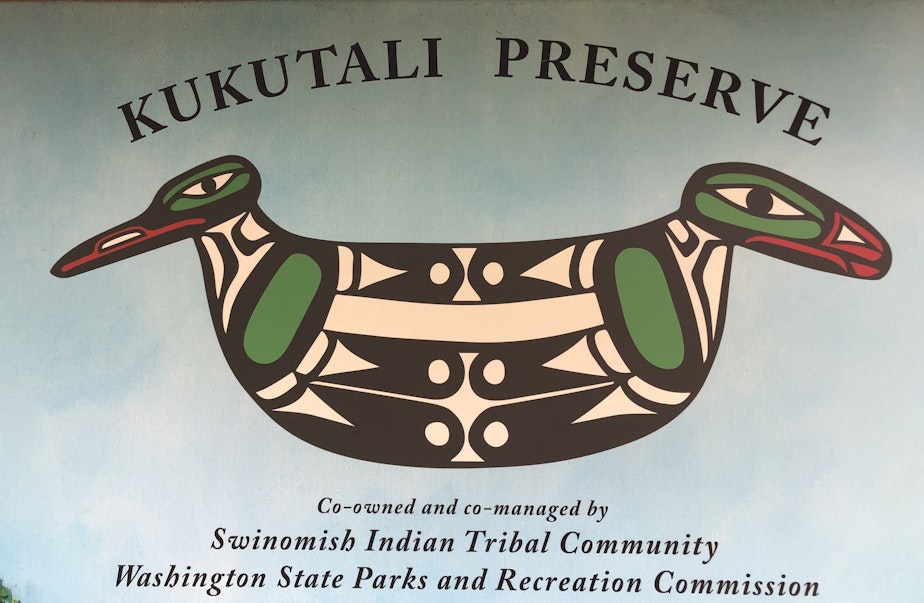
A state-issued Discover Pass is required. Pets are not allowed. Parking is limited. Note: Part of the trail is underwater for approximately two hours at high tide.
This piece is from our eight-part Travel For Good series, spotlighting tourism ideas across the state that teach about our fragile wonders and how we can help protect them. Check out more stories from the series here.
Want to share your social good travel ideas with us? Send an email to zhamid@kuow.org. We might feature your submission in future stories!




